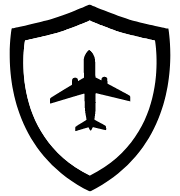Are you planning to study, work or travel in Australia? Congratulations! You are about to embark on a new and exciting journey.
As you walk out of the airport and take in all the sights and sounds of this vibrant country, it can be overwhelming to think about all the things you need to do upon arrival. But don’t worry, we’ve got you covered with this essential guide.
From getting a local SIM card to finding your way around the city, we’ve compiled a list of must-do actions to make your arrival in Australia as smooth and stress-free as possible. So let’s dive in!
Hire a Car
Once you have arrived at the airport and collected your luggage, the first thing you should consider is hiring a car. This will give you the freedom to explore the country at your own pace and convenience.
Most major airports in Australia have car rental services available, making it easy for you to reserve a car upon arrival. For instance, Sydney Airport car hire services are conveniently located at the arrivals level to enable you to get on the road quickly.
Just make sure you have a valid driver’s license and familiarize yourself with the road rules in Australia, as they may differ from your home country. It’s also recommended to purchase insurance for added peace of mind during your travels.
Get a Local SIM Card
Staying connected is a must when traveling abroad, and Australia is no exception. Getting a local SIM card upon arrival will save you from expensive roaming charges and allow you to stay connected with your loved ones back home.
You can easily purchase a prepaid SIM card from various providers at the airport or any convenience stores throughout the country. Choices include Telstra, Optus, Vodafone and more. Most plans offer data, calls and texts at reasonable prices.
Make sure to have a valid ID with you when purchasing a SIM card and be aware of the different coverage options available depending on your travel destinations within Australia. So don’t forget to grab a local SIM card upon arrival for hassle-free communication!
Exchange Currency if Needed
Australia’s currency is the Australian dollar (AUD) and it’s always a good idea to have some cash on hand for initial expenses. You can exchange your currency at the airport or any bank, but be aware that exchange rates may not be as favorable at the airport.
Alternatively, you can withdraw money from an ATM using your debit or credit card, but be aware of any transaction fees that may apply. It’s always a good idea to inform your bank beforehand about your travels to avoid any issues with using your cards in a foreign country.
Familiarize Yourself with Public Transport Options
Australia has an extensive public transportation network, making it easy and convenient to get around the cities. Upon arrival, take some time to familiarize yourself with the various options available, from buses and trains to trams and ferries.
Major cities like Sydney, Melbourne, Brisbane, and Perth have their own transportation cards or passes that offer discounted fares for frequent travelers. You can purchase these at the airport or any convenience store.
Don’t be afraid to ask for help from staff if you’re unsure about which mode of transportation to take or how to get to your destination. With a little bit of research and planning, you’ll be navigating the city like a local in no time.
Find Accommodation or Arrange Temporary Housing
If you haven’t already arranged for accommodation before arriving in Australia, it’s essential to do so upon arrival. You can book a hotel or hostel, or opt for temporary housing options like Airbnb or short-term rentals.
Major cities in Australia tend to be on the more expensive side, so it’s recommended to have a budget in mind and do some research beforehand. You can also consider staying with friends or family temporarily until you find long-term accommodation.
Make sure to check for location, amenities, and reviews before booking any accommodations. It’s also a good idea to consider the proximity of your accommodation to public transportation and other essential facilities.
Apply for a Tax File Number (TFN) if Working
If you plan on working in Australia, it’s crucial to apply for a Tax File Number (TFN) as soon as possible. This is an identification number used by the Australian Taxation Office to keep track of your taxes and superannuation contributions.
You can easily apply for a TFN online through the Australian Taxation Office website or in person at any Australia Post office. Having a TFN will ensure that you are taxed correctly and avoid any issues with your employer when starting work.
Open a Bank Account
Opening a bank account in Australia is essential for managing your finances. It’s recommended to do this within the first few days of arriving in the country. You can choose from various banks, including Commonwealth Bank, ANZ, Westpac, NAB and more.
To open a bank account, you will need to provide your passport and visa as proof of identification. You may also be required to provide proof of address in Australia. Once your account is set up, you can easily transfer funds from your home country or deposit cash into your account.
Purchase Public Transportation Passes or Cards

As mentioned earlier, major cities in Australia offer public transportation passes or cards for frequent travelers. These provide discounted fares and can be purchased at the airport or any convenience store.
For example, in Sydney, you can purchase an Opal card which can be used for buses, trains, and ferries. Melbourne has the Myki card that works similarly, while Brisbane offers the Go Card for their transportation system. Most of these cards are rechargeable and can be topped up as needed.
Upon arriving in Australia, there are various essential actions that you should take to ensure a smooth transition into this diverse and exciting country.
From hiring a car to purchasing a public transportation pass, we’ve covered some of the must-do actions for any newcomer.
Remember to plan and budget accordingly, and don’t be afraid to ask for help if needed. Most importantly, take some time to relax and enjoy the new sights and experiences that await you in Australia!
Take a deep breath, follow this guide, and start your journey with confidence and excitement.
